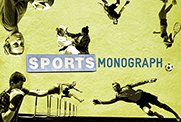Kosovo sport has moved into a new era.
For years it was defined by non-recognition; stories of Kosovo’s federations which sought acceptance into international governing bodies and its stars who competed in the colors of other states. Kosovo’s quest as a state to be recognized was played out over and over in microcosm at conferences and sporting events across the world. Kosovo wanted to play.
The narrative can now move on. In 2016, a Kosovo team competed in qualifying matches for international competitions in handball, basketball and football. Then there was the Olympics. Kosovo sent a team of athletes to Rio 2016 to participate in an Olympic Games for the very first time. One, Majlinda Kelmendi, came back with a gold medal.
The first step into this new era must be to look back and celebrate: Kosovo’s first matches, Kosovo’s first wins, Kosovo’s first medals. They were all hard fought victories. To help with the celebrations, our Sports monograph begins with the story of Kosovo’s debut in the football World Cup; an emotional trip to Finland that highlighted both the remaining hurdles and boundless potential that recognition has made possible.
As any sensible sports person knows though, celebrations can only last so long. We need to quickly get our head back in the game or 1-0 up becomes 2-1 down. It is important to self-examine and question the current state that Kosovar sport finds itself in.
Until now, Kosovo’s federations have always been the underdogs, battling for Kosovo overseas, desperately seeking acceptance. Now they must face more scrutiny. In our second story, “The Halls of Power,” Moral Pozhegu looks at some of the figures at the head of Kosovo sport’s governing bodies and asks how well they are serving their sportspeople.
Then there is infrastructure — the venues that house Kosovo’s sport, the places where champions are made, records are broken and fans’ emotions are frayed. They have been neglected for a long time. Our photo essay “The Homes of Kosovar Sport” allows a peek inside this world, at its history and future, but most importantly the unique present that will only exist at this moment in time.
This is because these venues are transforming, in large part due to changes in the Kosovar state’s investment in sport. Our video infographic, “No State Support, No Sport” helps explain how government spending on sport has evolved over the last 15 years, and how it is set to change post-recognition.
Despite the issues in the present, the future is undeniably looking brighter and is only just beginning. While the men made their debut last September, the women’s national football team play their first World Cup qualifier next month. We look at how they can find inspiration in two of European women’s football’s best players, both Kosovo born, in our story “Following in the Footsteps of Champions.”
Also finding inspiration in a forebear is Distria Krasniqi, a 21-year-old judoka who hopes to replicate Majlinda Kelmendi’s success by winning another Olympic medal for Kosovo in the judo competition. Unfortunately, the main obstacle is Majlinda herself — Distria needs to defeat her hero in order to emulate her. Long time Kosovo judo enthusiast Virtyt Gacaferri tells Distria’s unique story in “Grappling with Greatness.”
While Kosovo’s sporting future is becoming more and more exciting, its recognition has formed cloudier skies ahead for other countries who have relied on Kosovo’s absence from the sporting world to utilize Kosovo born talent.
Albania losing some of these sportspeople has raised existential questions amongst ethnic Albanians across the Balkans and further afield. Tirana resident Ermal Kuka ponders the question: “Are We One?”
Whatever the dilemmas, recognition has moved Kosovo’s sporting issues back onto Kosovar soil. It is time to take ownership. It is time to scrutinize. But more importantly it is time to show ambition; the future is brighter than ever.
It is time to stretch sinews to sprint and swim as fast as is physically possible, to leap high and go for the 3-pointer, to try and throw people on their back and win by ippon, to take on shots from outside the box. Kosovars can now take on the world — and win. It’s time to step up.K
Feature image: Majlinda Hoxha / K2.0.

Back to Monograph on Sports


